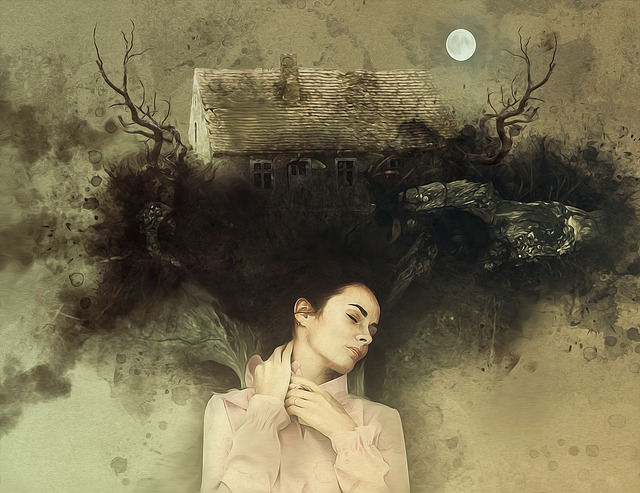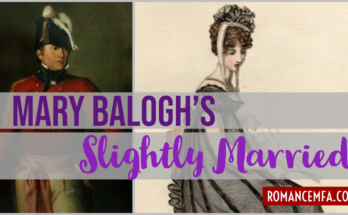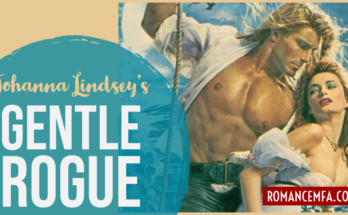This gothic mystery featuring a new bride haunted by the overwhelming presence of the last wife is often cited as a great romance. But is it really a romance?
Book details
Title: Rebecca
Author: Daphne du Maurier
Original publication date: 1938
Setting time & place: 1930s England
He is… a rich widower, age 42.
She is… an innocent young woman not long out of the school room, perhaps 21.
Reasons to read this title: Delightfully creepy. Also can be taken as a commentary on Jane Eyre.
My review of Rebecca
Is it a romance novel? No. While it does contain a love story, the emotional arcs of the hero and heroine are not dwelt upon.
Is it a must read romance novel? If you enjoy gothic mystery and emotional tension, by all means. But don’t expect an HEA.
When I was researching and beginning this Romance MFA project, Rebecca came up repeatedly as a classic romance. I put it on my syllabus. And yet it seemed clear to me by chapter three that it is not a romance in the popular fiction sense of the word. Which is not to say that Rebecca isn’t popular fiction–but let me remind you of the RWA definition of romance:
Two basic elements comprise every romance novel: a central love story and an emotionally satisfying and optimistic ending.
While Rebecca does include a nominal love story between Maxim de Winter and the unnamed narrator, it is not the central arc of the story. Rebecca is exactly what it says on the tin: a novel about Rebecca de Winter. The fact that she is neither the narrator nor even alive during the events of the book does not prevent her from being the focus of the story. The whole arc of the novel is the narrator gradually learning about Rebecca: her personality, her relationship with her husband, her life, and ultimately her death.
So if du Maurier’s novel isn’t a romance, why do so many people take it for one?
Part of the answer lies in the common confusion between “love story” and “romance,” but I have another theory: Jane Eyre. I’ve already discussed Charlotte Bronte’s novel as the source of the Brooding Hero, and Maxim de Winter falls rather neatly into that category. Just like Rochester, he has a tortured past. Seeking to escape it, he searches for a solace with a naive young woman whom he nearly loses when his secrets come out in the worst way. And at the end the madwoman burns his house down.
I was only a few chapters into Rebecca before my kindle notes start saying “Jane Eyre Jane Eyre Jane Eyre” on quotes like this one:
“It’s all very well,” I said; “you know everything there is to know about me. There’s not much, I admit, because I have not been alive for very long, and nothing much has happened to me, except people dying, but you—I know nothing more about you than I did the first day we met.”
We have a first person narrative of an orphan heroine who’s been working as a paid companion [read governess] to an unpleasant woman [read Aunt Reed]. She describes herself as just out of the school room [Lowood] and notes her cheap, well-worn clothing, as well as her lank hair.
While many of these superficial details are similar, du Maurier’s narrator has none of the stubborn vim and vigor of Jane Eyre. When I first noticed the similarities between the books and did a quick Google search, I ended up reading several articles which reminded me that Jane Eyre’s arc includes her establishing her financial independence before finally uniting with Rochester: she works for her own living and becomes an heiress. The narrator of Rebecca does no such thing. She relies entirely on the hero:
“Why do you say these things to me?” I said; “you know I love you more than anything in the world. There has never been anyone but you. You are my father and my brother and my son. All those things.”
That brings us back around to the second part of the RWA definition of romance: an emotionally satisfying and optimistic ending. And I’m not sure that we can consider Rebecca‘s ending to be an optimistic one. Our hero and heroine have come through the worst, presumably, but their home is a flaming wreck and they are driven into nomadic European exile. Our young heroine repeatedly professes her love for Maxim, but are they happy?
By the end of the book, she has overcome some of her personal doubts and become a more mature character, but her existence is still predicated entirely on her husband:
“Your lobster will be cold,” I said; “eat it, darling. It will do you good, you want something inside you. You’re tired.” I was using the words he had used to me. I felt better and stronger. It was I now who was taking care of him. He was tired, pale. I had got over my weakness and fatigue and now he was the one to suffer from reaction.
Which is, on the one hand, almost the same thing that Jane Eyre does — takes care of Rochester after he’s been broken — but in Jane Eyre, it’s clear that Rochester loves her. In Rebecca, I have serious doubts about the reciprocity of Maxim’s feelings. It’s fairly clear to me, if not to the narrator, that he chose her as an easy opposite to Rebecca. How does he take to her growing up? Near the end of the book, here’s what he says to her:
“It’s gone forever, that funny, young, lost look that I loved. It won’t come back again. I killed that too, when I told you about Rebecca… It’s gone, in twenty-four hours. You are so much older…”
Jane Eyre is clearly a romance. “Reader, I married him.” And Rebecca is clearly du Maurier reworking many elements of Bronte’s story, just as Bronte was reworking Richardson’s Pamela. But while all three novels may tell the same story, they are excellent examples that no two writers will approach the same material in the same way. The intervening centuries between each retelling give a different context to the stories and the elements twist and turn under each author’s pen, bringing out new themes — and love was not the theme that du Maurier was interested in.
Here’s a few links on Rebecca, and Jane Eyre connections:
- Bertrandias, Bernadette; “Daphne Du Maurier’s Transformation of Jane Eyre in Rebecca“; Revue LISA/LISA e-journal, Vol. IV – n°4 | 2006, 22-31.
- Dennison, Matthew; “How Daphne du Maurier wrote Rebecca“;
- Yardley, Jonathan; “Du Maurier’s ‘Rebecca,’ A Worthy ‘Eyre’ Apparent“; Washington Post, published 16 May 2004.
Header image by darksouls1 via Pixabay.



